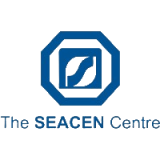The paper demonstrates that the economies of Indonesia Korea Philippines and Thailand which are among the first group of emerging markets to embrace the inflation targeting framework of monetary policy tend to adopt a form of an asymmetrical exchange rate behaviour wherein appreciation pressures are restrained more substantially than depreciation pressures. In short these four Asian economies exemplify aversion to appreciations such that greater flexibility is allowed only one side of the market. Formal econometric tests using the smooth transition autoregressive and the Markov regime switching models confirm this hypothesis of aversion to appreciation and show that the central banks of these four economies tend to tolerate more of depreciations than of appreciations of their local currencies against the US dollar.
-
About Us
-
Events
-
Publications
-
About The SEACEN Centre
-
The Centre's Governance
-
Courses
